Our work
EDRi is the biggest European network defending rights and freedoms online. We work to to challenge private and state actors who abuse their power to control or manipulate the public. We do so by advocating for robust and enforced laws, informing and mobilising people, promoting a healthy and accountable technology market, and building a movement of organisations and individuals committed to digital rights and freedoms in a connected world.
Filter resources
-
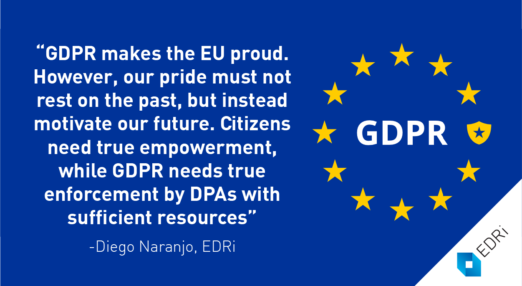
EU must let its crown jewel shine: GDPR needs progress
On 24 June, the European Commission published the Communication reviewing of the two years of application of the General Data Protection Regulation (GDPR) The Communication received input from the multistakeholder expert group on the application of the GDPR, of which EDRi members Access Now and Privacy International belong to.
Read more
-
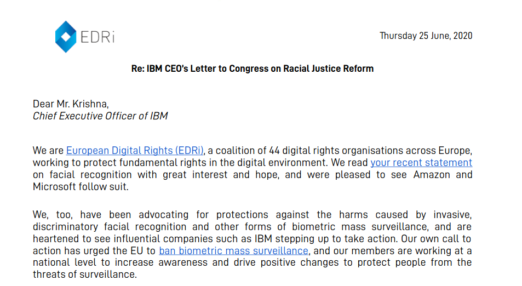
Open Letter: EDRi calls on IBM to clarify stance on facial recognition
On 25 June, EDRi sent an open letter to the CEO of IBM in response to their 8 June statement on racial equality and facial recognition in the US.
Read more
-

EDRi-gram 18.12, 24 June 2020
"Digital sovereignty means building infrastructures, helping create services, funding research and supporting critical civil society"
Read more
-
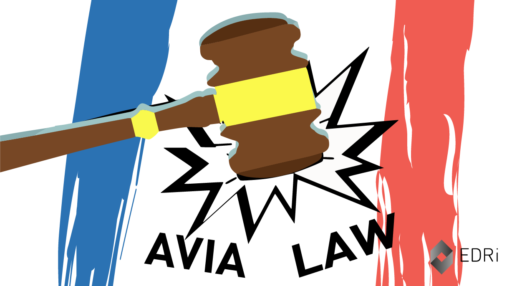
French Avia law declared unconstitutional: what does this teach us at EU level?
On 18 June, the French Constitutional Council, the constitutional authority in France, declared the main provisions of the “Avia law” unconstitutional. France’s legislation on hate speech was adopted in May despite being severely criticised from nearly all sides: the European Commission, the Czech Republic, digital rights organisations and LBGTQI+, feminist and antiracist organisations.
Read more
-
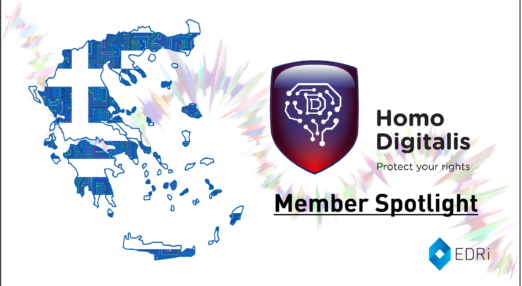
COVID-Tech: COVID-19 opens the way for the use of police drones in Greece
In EDRi’s series on COVID-19, COVIDTech, we explore the critical principles for protecting fundamental rights while curtailing the spread of the virus, as outlined in the EDRi network’s statement on the pandemic.
Read more
-
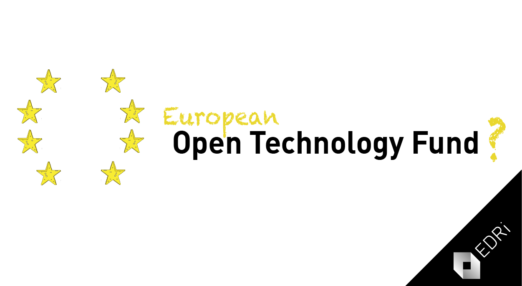
The threat on OTF as a wake up call for European digital sovereignty
Around 2 billion people in 60 countries are able to use the internet securely and without risks of being surveilled or censored. And all of this, thanks to the work done by a non-profit called Open Tech Fund (OTF) for only 15 million dollars a year. However, all of this may be over soon.
Read more
-
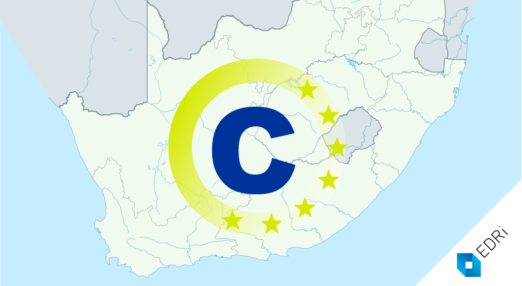
European Commission derails copyright reform in South Africa
Last year, the South African parliament adopted a progressive new copyright bill that would have drastically improved access to educational materials, introduced a fair use exception, implemented the Marrakesh treaty for the benefit of people who are blind or print disabled, and strengthened the negotiating positions of authors and performers in their negotiations with publishers.
Read more
-

Massive political data leak in Malta
After a massive leak of the voter’s list showing the voting preferences, addresses, phones and dates of birth of a majority of the Maltese population, EDRi member noyb.eu will assist the Daphne Foundation and Repubblika in their class action and file complaints about the data breach in various EU Member States.
Read more
-
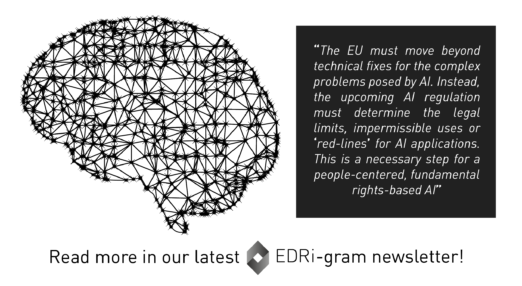
EDRi-gram 18.11, 10 June 2020
"The EU must move beyond technical fixes for the complex problems posed by AI. Instead, the upcoming AI regulation must determine the legal limits, impermissible uses or "red-lines" for AI applications. This is a necessary step for a people-centered, fundamental rights-based AI"
Read more
-

UK: Stop social media monitoring by local authorities
Would you like your local government to judge you by your Facebook activity? In a recent study, we investigated how local authorities (Councils) in Great Britain are looking at social media accounts as part of their investigation tactics on issues such as benefits, debt recovery, fraud, environmental investigations, and children’s social care.
Read more
-

Cryptocurrency scammers flood Facebook users with manipulative ads
Scammers using fake Forbes articles and anti-EU disinformation as bait continue to target Facebook users across Europe, the EDRi member Metamorphosis Foundation has warned.
Read more
-

COVID-Tech: the sinister consequences of immunity passports
In EDRi’s series on COVID-19, COVIDTech, we explore the critical principles for protecting fundamental rights while curtailing the spread of the virus, as outlined in the EDRi network’s statement on the pandemic.
Read more
